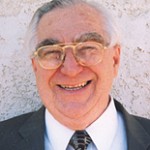Diane Sawyer recently interviewed Dr. Tim Johnson who is doing research on terminally ill patients and their responses to the dying process.
He spoke specifically about a grandmother, named Lois, who had cancer and refused chemotherapy treatment knowing such therapy would reduce her quality of life. She chose the quality of life over the quantitative because she wanted to share her last days in the best possible way with her family. She shared her decision with family members and her reasons, stating that chemo-therapy would prolong her life but its side effects would diminish her quality of life and her joy of being with them. The family accepted her decision and agreed with the choice she was making.
Dr. Johnson noted it is especially difficult for doctors to accept a patient’s decision like this because of their medical training, which emphasizes the philosophy to continue to do all that is possible to extend life.
He went on to say that he was awestruck by the heroism of the many patients he interviewed. His research found that patients and families who had an open discussion of death and dying fared much better and experienced less stress than those who refused to talk about it.
Dr. Johnson indicated having such a conversation among family members should take place even before someone is in the midst of a terminal illness. He admitted he’d already had this conversation with his own family, but in light of his findings and experience with patients choosing quality versus quantity of life, he was going to re-open the conversation with them!
If you are facing a terminal illness and have not had a heart to heart conversation about it with those you love, perhaps you should consider doing so. When we share what’s on in our hearts with those we love, everyone wins, even when the subject is about dying.
Hospice service is about quality of life and giving the terminally ill patient and family members the best they can have while dealing with their illness. The overall purpose of hospice is to relieve the effects of such illnesses so people can enjoy the best quality of life possible for the longest period of time.
If you wish help for yourself or a loved one facing a life-threatening illness, please call David Isom or Debbie Cox at 834-9300 for a free consultation.
Luigi Persichetti is the chaplain for Southern Utah Home Care and Hospice and the minister of the Unity Church of Positive Living in St. George.
